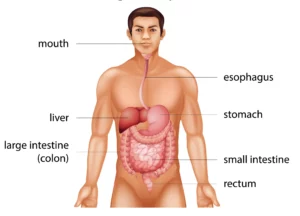 Esophageal cancer is a relatively uncommon but serious disease. Understanding the risks, recognizing the signs, and knowing about prevention and treatment options are crucial for managing this condition.
Esophageal cancer is a relatively uncommon but serious disease. Understanding the risks, recognizing the signs, and knowing about prevention and treatment options are crucial for managing this condition.
Today, we’ll explore esophagus cancer, its risks, signs, prevention, and available treatments.
Esophageal Cancer Overview
Esophageal cancer refers to malignancies that develop in the lining of the esophagus, the tube connecting the throat to the stomach. There are two main types:
- squamous cell carcinoma
- adenocarcinoma.
Risks and Causes
Risk factors for esophageal cancer include smoking, heavy alcohol consumption, obesity, chronic acid reflux (gastroesophageal reflux disease or GERD), and a diet low in fruits and vegetables. In some cases, genetic factors may also play a role.
Signs and Symptoms
Recognizing the signs is vital for early diagnosis. Common symptoms include difficulty swallowing (dysphagia), unintentional weight loss, chest pain, indigestion, and chronic cough.
Prevention Strategies
You can reduce the risk of esophageal cancer through several lifestyle modifications. These include quitting smoking, moderating alcohol consumption, maintaining a healthy weight, and managing acid reflux through diet and medication.
Screening and Early Detection
Early detection can significantly improve the chances of successful treatment. Individuals with risk factors should discuss screening options with their healthcare providers.
Treatment Options
Esophageal cancer treatment depends on the stage and type of cancer. Common treatments include surgery, chemotherapy, radiation therapy, and targeted therapy.
Surgery
Surgical options may involve removing the tumor (esophagectomy), creating a new esophagus using part of the stomach (esophagogastrostomy), or removing a portion of the esophagus (esophagogastrostomy).
Chemotherapy and Radiation Therapy
Chemotherapy and radiation therapy may be used to shrink tumors before surgery, target cancer cells, or alleviate symptoms in advanced cases.
Targeted Therapy
Targeted therapy drugs are designed to interfere with specific molecules involved in cancer growth. They are often used in combination with chemotherapy.
Palliative Care
Palliative care is an essential component of esophageal cancer treatment, focusing on symptom management and improving the patient’s quality of life.
Follow-Up Care
After treatment, regular follow-up care is necessary to monitor the patient’s progress, manage any potential side effects, and address potential recurrences.
Esophageal cancer is a serious disease that requires careful attention to risks, signs, prevention, and available treatments. Lifestyle modifications and early detection are key to reducing the risk of this cancer.
For those diagnosed with esophageal cancer, timely treatment and a supportive healthcare team can significantly improve the chances of successful management and improved quality of life.
Picture Credit: Freepik
